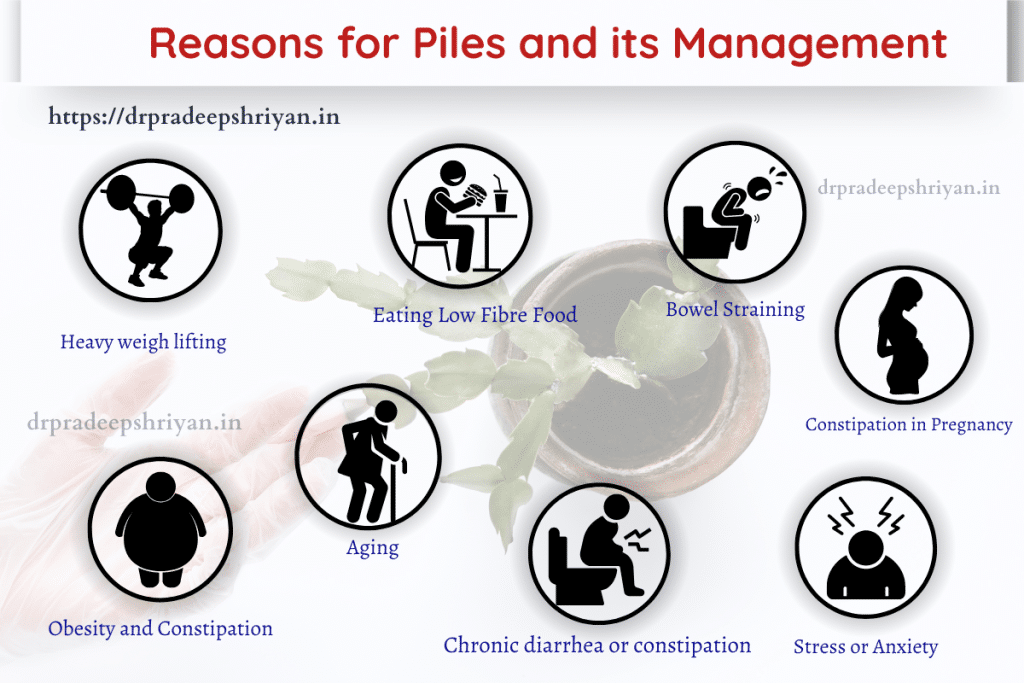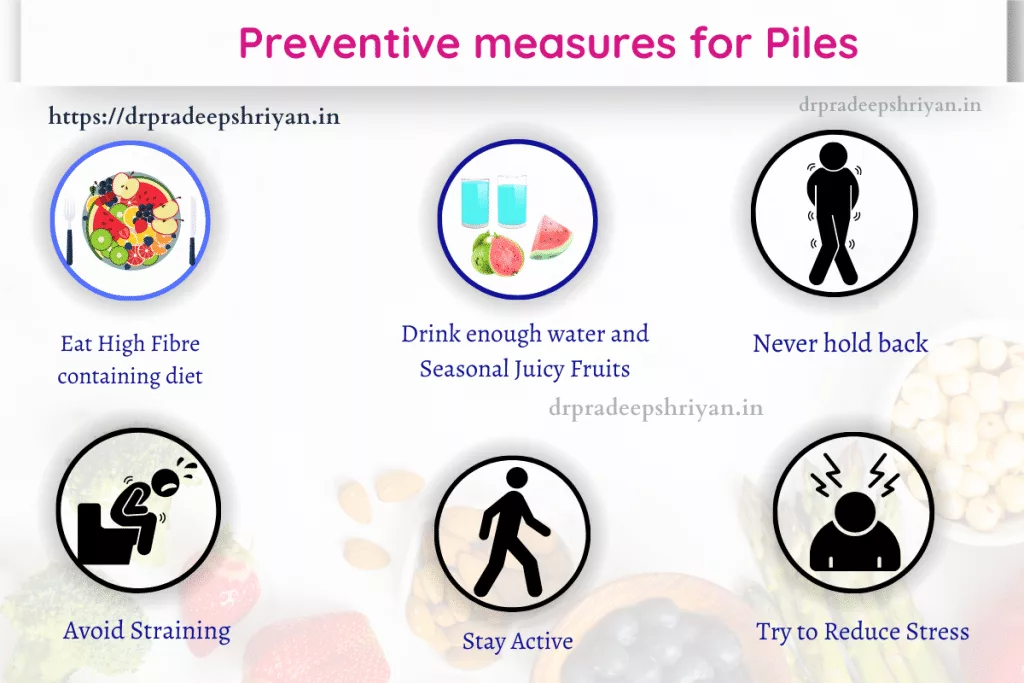August 8, 2023
Piles, also known as hemorrhoids, is a common condition that affects people of all ages. In India, the prevalence of piles has been on the rise due to various factors, including changes in food habits and sedentary lifestyles. This comprehensive guide aims to provide a detailed understanding of piles, their causes, management across different age groups, and lifestyle modifications to prevent and manage this condition effectively. Whether you are a child, an adult, or an elderly individual, adopting the right strategies can lead to better digestive health and enhanced overall well-being.
1) Piles in Children
In the case of young ones, piles are a rarity, but they do occur. Constipation, a prevalent issue among children due to their evolving dietary habits and lack of hydration, stands as a primary cause. Additionally, reduced physical activity may exacerbate the risk of piles in this age group.
2) Piles in Adults
As individuals transition into adulthood, the causes of piles tend to differ. Sedentary lifestyles and prolonged periods of sitting, often due to modern work environments, are major culprits. Furthermore, dietary choices that lack sufficient fibre content and water intake can lead to chronic constipation, and straining during bowel movements, subsequently leads to the development of piles. Pregnancy, especially in women, can also give rise to piles due to increased pressure on blood vessels in the pelvic region. Stress is the major factor Piles as well.
3) Piles in the Elderly
In the elderly, the causes of piles can be influenced by a combination of factors. As one ages, the tissues supporting the blood vessels in the rectal and anal region may weaken, making them more susceptible to swelling and inflammation. Chronic constipation, a common issue in older age, may exacerbate the situation. Moreover, age-related ailments, such as cardiovascular conditions, can impact blood flow and contribute to the development of piles.

Piles can be a sensitive topic, especially for Indian women, leading to hesitancy in discussing or seeking medical assistance. It is crucial to address these issues and debunk myths and misconceptions surrounding hemorrhoids to encourage proper medical care.
Encouraging Open Dialogue:
Creating a supportive environment where women feel comfortable discussing their concerns is crucial. By emphasizing the importance of open communication with healthcare professionals, we can help break the barriers of awkwardness and encourage women to seek timely medical help for piles. Regular health check-ups and discussions about digestive health are essential steps in preventing and managing piles and the overall health of women effectively.
Changing Food Habits and the Rise of Piles in India
In recent years, there has been a significant increase in piles cases in India, primarily due to changing food habits influenced by the consumption of junk food, fast food, and instant foods, along with a lack of salads and fiber intake.
Impact of Processed Foods:
High intake of processed foods, which are low in fiber and nutrients, can lead to constipation and contribute to piles development. These foods are often rich in unhealthy fats and sugars, leading to weight gain and an increased risk of digestive issues.
Lack of Fiber Intake:
Insufficient consumption of fiber-rich foods like fruits, vegetables, and whole grains can lead to digestive issues and aggravate piles. Fiber plays a crucial role in maintaining regular bowel movements and preventing constipation. A diet lacking in fiber can result in hard, dry stools, causing strain during bowel movements and increased pressure on the veins around the anus.
Dietary and Lifestyle Modifications for Preventing Piles
Adopting dietary and lifestyle changes is essential for Indians to reduce the risk of piles and maintain good digestive health.
Fiber-Rich Diet:
Including ample servings of fruits, vegetables, and whole grains in the daily diet can significantly increase fiber intake and promote regular bowel movements. Foods such as apples, bananas, spinach, millet, brown rice, and whole wheat bread (Chapati / Bhakari) are excellent sources of fiber that aid in preventing constipation.

Adequate Hydration:
Drinking plenty of water and fluids is vital to prevent constipation and maintain proper hydration. Staying well-hydrated softens stools, making them easier to pass and reducing the risk of piles. Aim to drink at least eight glasses of water per day, and more during hot weather or physical activities.
Regular Exercise:
Engaging in regular physical activity is essential for preventing piles. Exercise promotes bowel regularity and helps maintain a healthy weight. Activities like walking, swimming, and yoga can be beneficial in improving digestive health.
Avoid Prolonged Sitting:
Sitting for extended periods can put pressure on the veins in the anus, increasing the risk of piles. Take breaks from sitting every hour, stretch, and move around to relieve pressure and improve blood flow in the anal region.
Relax yourself:
Don’t Stress too much. It affects the overall health of a person. Any Mental Health challenges such as Anxiety, Fear, Panic Attacks, and Psychological trauma can lead to Hemorrhoids or can deteriorate your overall health condition. Pay attention to any Psychological challenges and address them and take the help of a Mental Health Professional whenever necessary.
Conclusion:
Piles, a common condition affecting people of all ages, can be managed effectively through understanding the specific causes and implementing appropriate lifestyle changes. For children, adults, and the elderly, adopting the right strategies can lead to better digestive health and enhanced overall well-being. Seeking timely medical help and incorporating healthy habits will contribute to a healthier lifestyle and reduce the burden of piles in the country. Take charge of your digestive health today for a better tomorrow
Developed by PRAZONE Web Solutions
Copyright © 2024 All rights reserved by
Dr Pradeep Shriyan